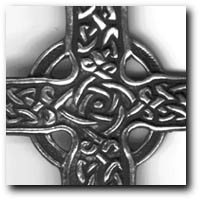|
ESCHATON |
| Read Isaiah 65:17-25. Verses 20, 22, 25: "Never
again will there be in it an infant who lives but a few days, or an old man who does not
live out his years; he who dies at a hundred will be thought a mere youth; he who fails to
reach a hundred will be considered accursed. [. . .] No longer will they build houses and
others live in them, or plant and others eat. For as the days of a tree, so will be the
days of my people; my chosen ones will long enjoy the works of their hands. [. . .] The
wolf and the lamb will feed together, and the lion will eat straw like the ox, but dust
will be the serpent's food. They will neither harm nor destroy on all my holy
mountain," says the LORD. Rev 21:1-5a: Then I saw a new heaven and a new earth, for the first heaven and the first earth had passed away, and there was no longer any sea. I saw the Holy City, the new Jerusalem, coming down out of heaven from God, prepared as a bride beautifully dressed for her husband. And I heard a loud voice from the throne saying, "Now the dwelling of God is with men, and he will live with them. They will be his people, and God himself will be with them and be their God. He will wipe every tear from their eyes. There will be no more death or mourning or crying or pain, for the old order of things has passed away." He who was seated on the throne said, "I am making everything new!" In a world like ours, rift with cultural genocide, racial hatred, class divisions, and sexual abuse, what can we confidently hope for? And in what do we hope? Christianity holds out the promise of a better future, a time where perfect personal and social harmony and justice are carried out under the benevolent oversight of our Heavenly Father. It teaches that the eschaton, or the end of all things, is fulfilled in Christ's kingdom, in the perfect peace, or better said, the perfect shalom of God. It prophesies that our present disruption and decay will be revitalized by the work of the Spirit into complete newness. Furthermore, Christ has set up his Church as an (albeit fallible) testimony to that future harmony and perfection. He has begun in us now what will be completely revealed only in the New Heaven and New Earth. Because of such a vision and hope, Christianity respects the work of humanity for social justice, racial and ethnic peace-making, and the healing of human structures and persons. Because God intends for the world to be healed of its ancient hatreds and divisions, we are to be a firstfruits, a sign of what God in Christ has promised us. This is not to say that any political or cultural work can bring in God's kingdom, for no human system can replicate what God alone by his Spirit can work, yet nonetheless we are to work in lieu of that prophesied time. We are to continually hope, and hope requires action. Literature is often produced around the themes of protest, reform, and justice. Works such as Alan Paton's Cry, The Beloved Country, which worked for an end to apartheid in South Africa, awaken us to the costs and losses that such systems produce. Others such as Wendell Berry's Remembering recall the power and joys of the local community, reminding us of those aspects of our lives we should seek to maintain in the face of contemporary social displacement. Still others project a future utopian world, perhaps giving us a portrait of what a more perfect society might be like. The Christian hope of the eschaton can effectively interact with such literature, seeking to refine our understanding and practice. Paton, for instance, can teach Christians how to better cross divisions of class and color by building personal friendships as well as by reforming unjust laws. And Berry might cause us to ask what we lose in our churches when we let modern technologies crowd out ancient practices of worship. * * * * * Central Insight: Christian social and political reform is based in the promise of the eschaton; the literature of reform can be a meaningful part of that activity. Suggestions for Application: Highlight a particular theological insight of Christianity regarding reform, protest, justice that is present either explicitly or implicitly in a text. Stress what it teaches. |
|
